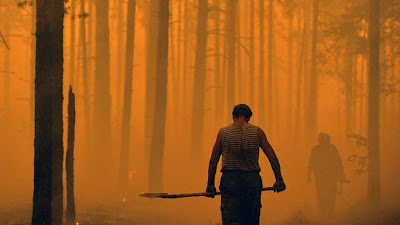Russia staged the best World Cup of modern times
The bitterness when Russia pipped England in the race to stage the World Cup was palpable. Very soon, there were incessant implications that the tournament would be a disaster and countless attempts to organise a boycott on flimsy pretexts. Nick Clegg was one of the quickest out of the blocks, demanding British teams refuse to participate in protest at the Kremlin’s insistence on confronting Jihadist maniacs in Syria. Russia’s stubbornly independent foreign policy and resistance to western groupthink has resulted in it being treated as a pariah. Yet it confounded its critics by staging the most entertaining World Cup in living memory and proved itself an exceptional host. From the opening ceremony to the trophy presentation, which took place in a near biblical rainstorm, Russia 2018 was an unqualified triumph. The conspiracy theorists will allege that Vladimir Putin stage-managed the event carefully in order to cultivate a positive image of his country (as if micromanaging t...
